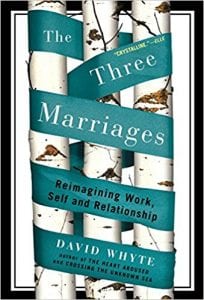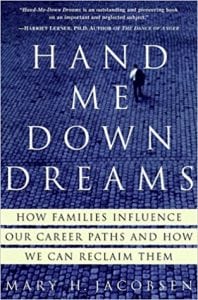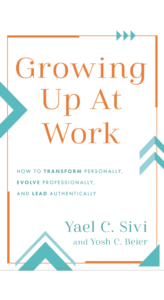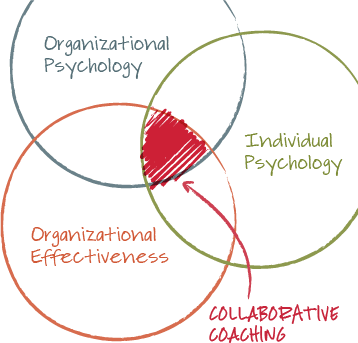Growing Up At Work
IS THERE A RICHER ENVIRONMENT TO GROW AND MATURE THAN OUR WORKPLACE?
Converging personal and professional growth
 One of our favorite authors, David Whyte, writes in “The Three Marriages: Reimagining Work, Self and Relationship, Growth happens in many contexts, from our personal relationships with friends, parents, and significant others to how we approach work and development opportunities. “When you view the various aspects of your life through that prism, it’s clear to see how everything is connected, and that when you grow or improve in one area, you are likely to improve in others.”
After being coached by us for several months, one of our clients shared that our sessions helped him be more adept and capable as a manager, but that his increased awareness about himself also helped him strengthen his marriage as well. By growing up, we can be more present and authentic in all of our relationships.
One of our favorite authors, David Whyte, writes in “The Three Marriages: Reimagining Work, Self and Relationship, Growth happens in many contexts, from our personal relationships with friends, parents, and significant others to how we approach work and development opportunities. “When you view the various aspects of your life through that prism, it’s clear to see how everything is connected, and that when you grow or improve in one area, you are likely to improve in others.”
After being coached by us for several months, one of our clients shared that our sessions helped him be more adept and capable as a manager, but that his increased awareness about himself also helped him strengthen his marriage as well. By growing up, we can be more present and authentic in all of our relationships. Do you know what you're about?
One leader we coached came to us for guidance on how to best position himself to eventually become president of his company. He felt he had the skills, expertise, and experience, but through a series of conversations with his colleagues, we learned that there was a pivotal gap holding him back. He found out that his colleagues didn’t really understand who he was, and what motivated him – beyond his own career progression – and as a result, they didn’t trust him.
When we delved into why that might be, we discovered an interesting truth: He didn’t really know what he was about either. In fact, he couldn’t articulate or explain exactly why he wanted to seek this bigger role. All he’d ever known was that success meant becoming captain of the ship, and so that was the role he was trying to obtain.
But all the training in the world—all the advice about how to better define strategic priorities or how to manage his time or communicate with his people—weren’t going to help him build trust with others required to ultimately attain the role.
He needed other people to look at him and acknowledge that he was leadership material. And to get there, he had to “grow up” – to become better acquainted with himself and the unique drivers for his leadership vision. And, ultimately, he had to find a place for others in a shared vision and include them on this journey.
The role of scripts in growing up
That client was following an internal “script” that said, “If you have these credentials and results to show, and you’ve worked in your company for x years and you’ve had y types of experience, then you are leadership material. You should aspire to be president and considered for the role.”
We find that a most significant area to confront when considering how to grow up at work is becoming aware of the scripts we replay to ourselves about what it means to be a successful adult or a leader.
The concept behind a “script” is that instead of reaching your own conclusion about who or what you want to be or how to relate to others, you cling to the narrative that you’ve become accustomed to—often with roots in family, society, and culture—about the way things “should” be. Working with such scripts gets even more complex and confusing once we add the strong messages about gender, culture, or nationality, for instance.
For example, a common script might make you believe you should be seeking advancement to the next job with a bigger salary and a more impressive job title. But that script ignores that some people prefer to excel as an individual contributor rather than automatically moving up the next rung on the ladder.
A key factor in growing up at work is deciding if you are going to make your decisions from these antiquated scripts, or if you are able to “self-author” and do what’s best for you—right here, right now, amidst your existing relationships—rather than living the script others have written for you.
"Hand-me down" dreams: How our families influence our leadership

This notion of living out others’ hopes for us is reminiscent of a career-development book we recommend to clients, “Hand-Me-Down Dreams: How Our Families Influence Our Career Path,” which describes the fierce pull that many of us feel to conform to our family’s wishes even though we know it doesn’t quite fit.
When you are able to move past these scripts—whether related to the career you choose or the kind of leader you become at work–you expand from merely understanding and replicating values, beliefs, attitudes, and customs. You move into a “self-authored state” when you are able to step back and arrive at your own conclusions and make your own choices.
Someone operating from this “self-authored mind” is shaping their own set of values and aspirations, rather than contorting themselves to fit into the many “shoulds” that our family and society heap on us.
Primary stages of adult development
When talking about scripts, we often reference the work of Robert Kegan, a Harvard professor in adult learning and professional development, who, along with co-author Lisa Lahey, advanced the theory that there are a few primary stages of adult development—among them — and relevant in the context of professional development — the socialized mind, the self-authoring mind and the self-transforming mind. What do these stages entail?
- The socialized mind: When we are operating from the socialized mind, we are strongly informed by external scripts given to us by family, friends, mentors, higher education, etc. It’s difficult to discern what we think from what influential others in our lives believe. A socialized mind is dependent on external forces. Often, this mindset can be summarized as “life is happening to me”.
- The self-authoring mind: In a self-authored mind, we have learned more about our own beliefs and values, and we are better able to question the expectations and values “handed down” to us. We are better able to take a stand for what’s important to us, to set limits, and to solve problems based on our own experiences and beliefs. A self-authoring mind is independent of external forces and privileges our own experience and point of view. This mindset can be summarized as “life is happening by me.”
- The self-transforming mind: This state of mind is characterized by a comfort in paradox and a movement beyond both the socialized mind state as well as beyond a notion that truth is found within us only. A self-transforming mind is interdependent; it takes the best of other ideas and integrates it with our own. It is comfortable with ambiguity and can observe itself. This mindset takes the form of “life is happening through me.”
In our experience, many of the leaders we work with life on an edge between their socialized mind and the self-authoring mind. We see this as an exciting opportunity to support the development of our clients so that we can help them take one step closer to “growing up” at work.
Adult Development Coaching: You don't need to do this alone
 We often find that our clients come to us seeing themselves stuck in a script (evocative of the socialized mind) but unable to break free from the shackles of expectations to move forward into their self-authoring mind. And that’s where our work begins.
The work we do, especially with high-functioning professionals, nearly always lives at the convergence between personal and professional growth. This means helping our clients learn to grow and mature into the fullness of their adulthood.
Work is such a rich and meaningful environment where we spend much of our time. What a terrific place to grow and mature. Let us know when you’re ready to talk about your growth.
We often find that our clients come to us seeing themselves stuck in a script (evocative of the socialized mind) but unable to break free from the shackles of expectations to move forward into their self-authoring mind. And that’s where our work begins.
The work we do, especially with high-functioning professionals, nearly always lives at the convergence between personal and professional growth. This means helping our clients learn to grow and mature into the fullness of their adulthood.
Work is such a rich and meaningful environment where we spend much of our time. What a terrific place to grow and mature. Let us know when you’re ready to talk about your growth. LET'S CO-CREATE YOUR SUCCESS
Adult development theory offers a powerful map to understand how we mature socially and cognitively.
We integrate these concepts and insights into our approach to leadership coaching and team building that drives personal & professional growth – and supports people’s ability to better embrace the complexities, ambiguities, and conflicting priorities of life.
- Is learning the same as growth?
- The elusiveness of the perfect team
